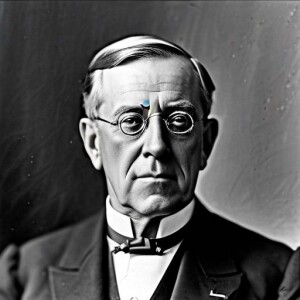
Woodrow Wilson, the 28th President of the United States, was a man of great conviction and vision. Serving in office from 1913 to 1921, he left an indelible mark on American history with his unwavering commitment to promoting peace and democracy worldwide.
During his presidency, Wilson ushered in a wave of domestic and foreign policy achievements that still reverberate today. He established the Federal Reserve System, created the Federal Trade Commission, and passed the Clayton Antitrust Act. Furthermore, he was a champion of women’s rights, instrumental in the passage of the 19th Amendment which gave women the right to vote.
Wilson’s foreign policy was characterized by his passionate belief in democracy and self-determination. He was a key figure in the establishment of the League of Nations, an international organization aimed at preventing future wars and promoting cooperation among nations. Though the United States did not ultimately join the League, Wilson’s vision for a more peaceful world order continues to inspire international efforts to this day.
However, Wilson’s legacy is not without controversy. He oversaw the segregation of federal agencies and the military during his presidency, and his handling of the First World War and the rise of fascism in Europe faced criticism. Despite these shortcomings, Wilson’s contributions to the country and the world are still studied and debated, making him a significant figure in American history.
